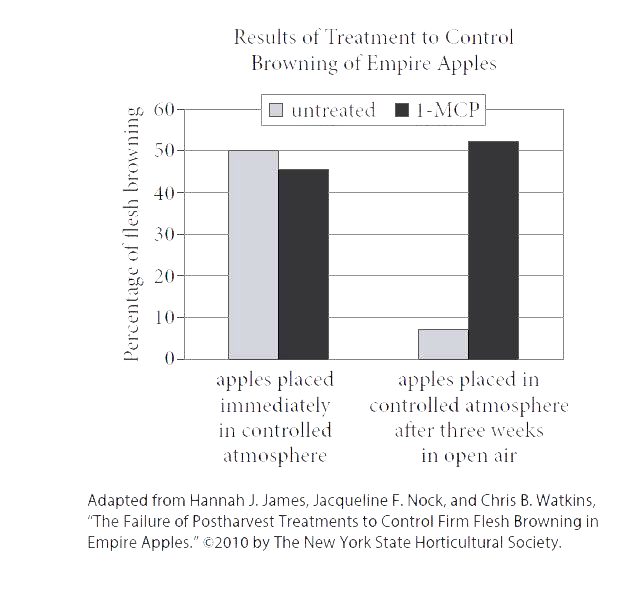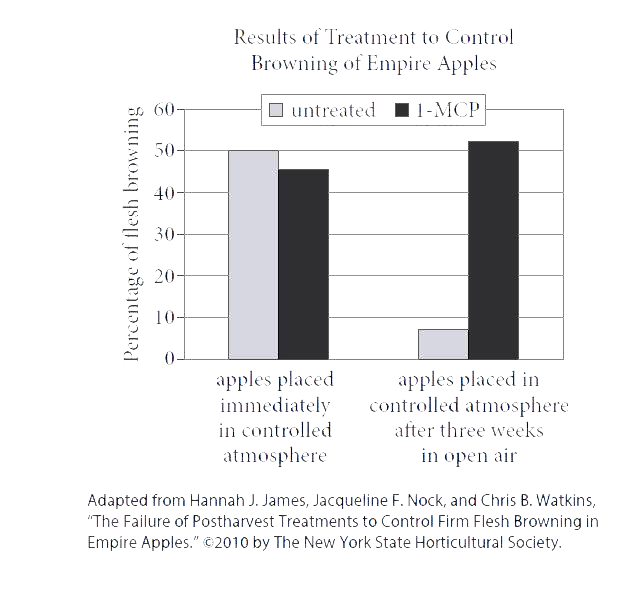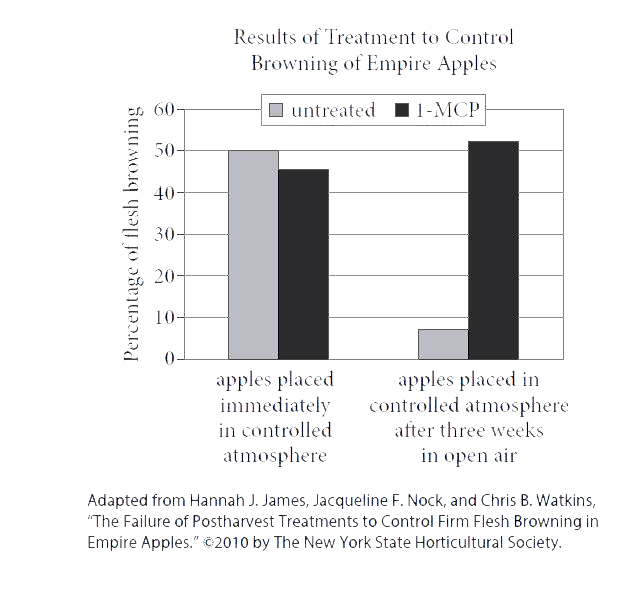In Acacia species, the first few leaves are pinnately compound. Then there are leaves with flattened petiole and fewer pinnae. The leave of adult plant has parallel veined flattened petiole and no pinnae. It shows that
Leaves of adult plant are reduced to phyllodes while those of the seedling are unreduced.
The parallel-veined green structures of the adult plant are phylloclades
The plant shows developmental heterophylly, compound in seedling and simple in adult plant
The leaves of adult plant are unreduced while they are reduced in the seedling stage.
The correct Answer is:A
Step-by-Step Solution:
1. Identify the Leaf Types in Acacia Species:
- The first few leaves of Acacia species are described as pinnately compound. This means that these leaves have a central stem (rachis) with multiple leaflets arranged on either side.
- As the plant matures, the leaves change to those with a flattened petiole and fewer pinnae (leaflets).
2. Analyze the Adult Plant Leaves:
- In the adult Acacia plant, the leaves are noted to have a parallel-veined structure and a flattened petiole, but they do not have any pinnae. This indicates a significant change in leaf structure as the plant matures.
3. Understand the Concept of Heterophylly:
- The term "heterophylly" refers to the phenomenon where a single plant exhibits different types of leaves at different stages of its life cycle. In this case, the seedling has compound leaves, while the adult plant has simple leaves.
4. Define Phyllodes:
- The adult leaves are described as having a flattened petiole and being parallel-veined, which suggests that these structures are not true leaves but rather modifications of the petiole known as phyllodes. Phyllodes are green, flattened structures that perform photosynthesis, similar to leaves.
5. Conclusion:
- The observation that the adult plant's leaves are reduced to phyllodes while the seedling has unreduced leaves indicates a developmental change from compound to simple leaf forms. This adaptation may serve various functions, such as reducing water loss or optimizing photosynthesis in adult plants.
Final Statement:
- Therefore, it shows that in Acacia species, the leaves of the adult plant are reduced to phyllodes, while those of the seedling are unreduced.
---
- The first few leaves of Acacia species are described as pinnately compound. This means that these leaves have a central stem (rachis) with multiple leaflets arranged on either side.
- As the plant matures, the leaves change to those with a flattened petiole and fewer pinnae (leaflets).
- In the adult Acacia plant, the leaves are noted to have a parallel-veined structure and a flattened petiole, but they do not have any pinnae. This indicates a significant change in leaf structure as the plant matures.
- The term "heterophylly" refers to the phenomenon where a single plant exhibits different types of leaves at different stages of its life cycle. In this case, the seedling has compound leaves, while the adult plant has simple leaves.
- The adult leaves are described as having a flattened petiole and being parallel-veined, which suggests that these structures are not true leaves but rather modifications of the petiole known as phyllodes. Phyllodes are green, flattened structures that perform photosynthesis, similar to leaves.
- The observation that the adult plant's leaves are reduced to phyllodes while the seedling has unreduced leaves indicates a developmental change from compound to simple leaf forms. This adaptation may serve various functions, such as reducing water loss or optimizing photosynthesis in adult plants.
- Therefore, it shows that in Acacia species, the leaves of the adult plant are reduced to phyllodes, while those of the seedling are unreduced.
Topper's Solved these Questions
- LEAFBOOK - DINESH PUBLICATION ENGLISHCHAPTER - LEAFEXERCISE - CYG
10 Videos
- KINGDOM PROTISTA (UNICELLULAR EUKARYOTES)BOOK - DINESH PUBLICATION ENGLISHCHAPTER - KINGDOM PROTISTA (UNICELLULAR EUKARYOTES)EXERCISE - CHECK YOUR GRASP
19 Videos
- LOCOMOTION AND MOVEMENTBOOK - DINESH PUBLICATION ENGLISHCHAPTER - LOCOMOTION AND MOVEMENTEXERCISE - CHECK YOUR GRASP
10 Videos
Similar Questions
Knowledge Check
When trees become iron deficient, their leaves turn yellow prematurely. A botanist is testing iron doped fertilizers on maple trees with iron deficiencies. The botanist has selected 200 maple trees in the state of Wisconsin that have been identified as having an iron deficiency Half of the trees are randomly chosen to recieve the iron-doped fertilizer, while the other half are given a fertilizer without iron. The results from the test show that trees adminstered the iron doped fertilizer had fewer premature yellow leaves, indicating an increase in their iron levels. Which of the following statements best describes the results of the test?
AThe iron doped fertilizer will improve iron levels in any treeBThe iron doped fertilizer reduces premature yellow leaves better than any other fertilizer.CThe iron doped fertilizer will cause a significant increase in the iron levels.DThe iron doped fertilizer will result in fewer premature yellow leaves in maple trees in Wisconsin.How Do You Like Those Apples? Marketed as SmartFresh, the chemical 1-MCP (1-methylcyclopropene) has been used by fruit growers since 2002 in the United States and elsewhere to preserve the crispness and lengthen the storage life of apples and other fruit, which often must travel long distances before being eaten by consumers. 23 1-MCP lengthens storage life by three to four times when applied to apples. This extended life allows producers to sell their apples in the off-season, months after the apples have been harvested. And at a cost of about one cent per pound of apples, 1-MCP is a highly cost-effective treatment. However, 1-MCP is not a panacea for fruit producers or sellers: there are problems and limitations associated with its use.[1] 1-MCP works by limiting a fruit’s production of ethylene, 24 it is a chemical that causes fruit to ripen and eventually rot. [2] While 1-MCP keeps apples 25 tight and crisp for months, it also limits 26 their scent production. [3] This may not be much of a problem with certain kinds of apples that are not naturally very fragrant, such as Granny Smith, but for apples that are prized for their fruity fragrance, such as McIntosh, this can be a problem with onsumers, 27 that will reject apples lacking the expected aroma. [4] But some fruits do not respond as well to 1-MCP as others 28 did, and some even respond adversely. [5] Furthermore, some fruits, particularly those that naturally produce a large amount of ethylene, do not respond as well to 1-MCP treatment. [6] Take Bartlett 29 pears, for instance, unless they are treated with exactly the right amount of 1-MCP at exactly the right time, they will remain hard and green until they rot, and consumers who experience this will be unlikely to purchase them again. 30 Finally, researchers have found that 1-MCP actually increases susceptibility to some pathologies in certain apple varieties. For example, Empire apples are prone to a condition that causes the flesh of the apple to turn brown. Traditionally, apple producers have dealt with this problem by leaving the apples in the open air for three weeks before storing them in a controlled atmosphere with tightly regulated temperature, humidity, and carbon dioxide levels. As the graph shows, the flesh of untreated Empire apples that are first stored in the open air undergoes 31 roughly five percent less browning than the flesh of untreated Empire apples that are immediately put into storage in a controlled environment. However, when Empire apples are treated with 1-MCP, 32 their flesh turns brown when the apples are first stored in the open air, though not under other conditions. Although researchers continue to search for the right combination of factors that will keep fruits fresh and attractive, 33 the problem may be that consumers are overly concerned with superficial qualities rather than the actual freshness of the fruit.

Which choice most effectively combines the underlined sentences?AWhen applied to apples, 1-MCP lengthens storage life by three to four times, allowing producers to sell their apples in the off-season, months after the apples have been harvested.BProducers are allowed to sell their apples months after they have been harvested—in the off-season—because 1-MCP, when applied to apples, lengthens their storage life by three to four timesC1-MCP lengthens storage life, when applied to apples, by three to four times, allowing producers to sell their apples months after the apples have been harvested in the off-season.DMonths after apples have been harvested, producers are allowed to sell their apples, in the off-season, because 1-MCP lengthens storage life when applied to apples by three to four times.How Do You Like Those Apples? Marketed as SmartFresh, the chemical 1-MCP (1-methylcyclopropene) has been used by fruit growers since 2002 in the United States and elsewhere to preserve the crispness and lengthen the storage life of apples and other fruit, which often must travel long distances before being eaten by consumers. 23 1-MCP lengthens storage life by three to four times when applied to apples. This extended life allows producers to sell their apples in the off-season, months after the apples have been harvested. And at a cost of about one cent per pound of apples, 1-MCP is a highly cost-effective treatment. However, 1-MCP is not a panacea for fruit producers or sellers: there are problems and limitations associated with its use.[1] 1-MCP works by limiting a fruit’s production of ethylene, 24 it is a chemical that causes fruit to ripen and eventually rot. [2] While 1-MCP keeps apples 25 tight and crisp for months, it also limits 26 their scent production. [3] This may not be much of a problem with certain kinds of apples that are not naturally very fragrant, such as Granny Smith, but for apples that are prized for their fruity fragrance, such as McIntosh, this can be a problem with consumers, 27 that will reject apples lacking the expected aroma. [4] But some fruits do not respond as well to 1-MCP as others 28 did, and some even respond adversely. [5] Furthermore, some fruits, particularly those that naturally produce a large amount of ethylene, do not respond as well to 1-MCP treatment. [6] Take Bartlett 29 pears, for instance, unless they are treated with exactly the right amount of 1-MCP at exactly the right time, they will remain hard and green until they rot, and consumers who experience this will be unlikely to purchase them again. 30 Finally, researchers have found that 1-MCP actually increases susceptibility to some pathologies in certain apple varieties. For example, Empire apples are prone to a condition that causes the flesh of the apple to turn brown. Traditionally, apple producers have dealt with this problem by leaving the apples in the open air for three weeks before storing them in a controlled atmosphere with tightly regulated temperature, humidity, and carbon dioxide levels. As the graph shows, the flesh of untreated Empire apples that are first stored in the open air undergoes 31 roughly five percent less browning than the flesh of untreated Empire apples that are immediately put into storage in a controlled environment. However, when Empire apples are treated with 1-MCP, 32 their flesh turns brown when the apples are first stored in the open air, though not under other conditions. Although researchers continue to search for the right combination of factors that will keep fruits fresh and attractive, 33 the problem may be that consumers are overly concerned with superficial qualities rather than the actual freshness of the fruit.
 ANO CHANGEBfirmCstiffDtaut
ANO CHANGEBfirmCstiffDtaut
Identify the plant which has compound leaves :
View SolutionA_______ is present in the axil of petiole in both simple and compound leaves but not in the axil of leaflets
View SolutionRead the following statements. (a) Simple leaves have bud on the axis of the petiole. (b) In pinnately compound leaf, the midrib forms a common axis called rachis. (c) Paripinnate leaves are found in Cassia. (d) Tripinnate leaves are found in Mimosa. Select the correct option.
View SolutionAssertion :- In palmately compound leaves rachis is absent.
Reason :-In palmately compound leaf all the leaflets are attached on common point i.e, at the tip of petiole.
View SolutionHow Do You Like Those Apples? Marketed as SmartFresh, the chemical 1-MCP (1-methylcyclopropene) has been used by fruit growers since 2002 in the United States and elsewhere to preserve the crispness and lengthen the storage life of apples and other fruit, which often must travel long distances before being eaten by consumers. 23 1-MCP lengthens storage life by three to four times when applied to apples. This extended life allows producers to sell their apples in the off-season, months after the apples have been harvested. And at a cost of about one cent per pound of apples, 1-MCP is a highly cost-effective treatment. However, 1-MCP is not a panacea for fruit producers or sellers: there are problems and limitations associated with its use.[1] 1-MCP works by limiting a fruit’s production of ethylene, 24 it is a chemical that causes fruit to ripen and eventually rot. [2] While 1-MCP keeps apples 25 tight and crisp for months, it also limits 26 their scent production. [3] This may not be much of a problem with certain kinds of apples that are not naturally very fragrant, such as Granny Smith, but for apples that are prized for their fruity fragrance, such as McIntosh, this can be a problem with consumers, 27 that will reject apples lacking the expected aroma. [4] But some fruits do not respond as well to 1-MCP as others 28 did, and some even respond adversely. [5] Furthermore, some fruits, particularly those that naturally produce a large amount of ethylene, do not respond as well to 1-MCP treatment. [6] Take Bartlett 29 pears, for instance, unless they are treated with exactly the right amount of 1-MCP at exactly the right time, they will remain hard and green until they rot, and consumers who experience this will be unlikely to purchase them again. 30 Finally, researchers have found that 1-MCP actually increases susceptibility to some pathologies in certain apple varieties. For example, Empire apples are prone to a condition that causes the flesh of the apple to turn brown. Traditionally, apple producers have dealt with this problem by leaving the apples in the open air for three weeks before storing them in a controlled atmosphere with tightly regulated temperature, humidity, and carbon dioxide levels. As the graph shows, the flesh of untreated Empire apples that are first stored in the open air undergoes 31 roughly five percent less browning than the flesh of untreated Empire apples that are immediately put into storage in a controlled environment. However, when Empire apples are treated with 1-MCP, 32 their flesh turns brown when the apples are first stored in the open air, though not under other conditions. Although researchers continue to search for the right combination of factors that will keep fruits fresh and attractive, 33 the problem may be that consumers are overly concerned with superficial qualities rather than the actual freshness of the fruit.

Which choice offers an accurate interpretation of the data in the graph?
View Solution
